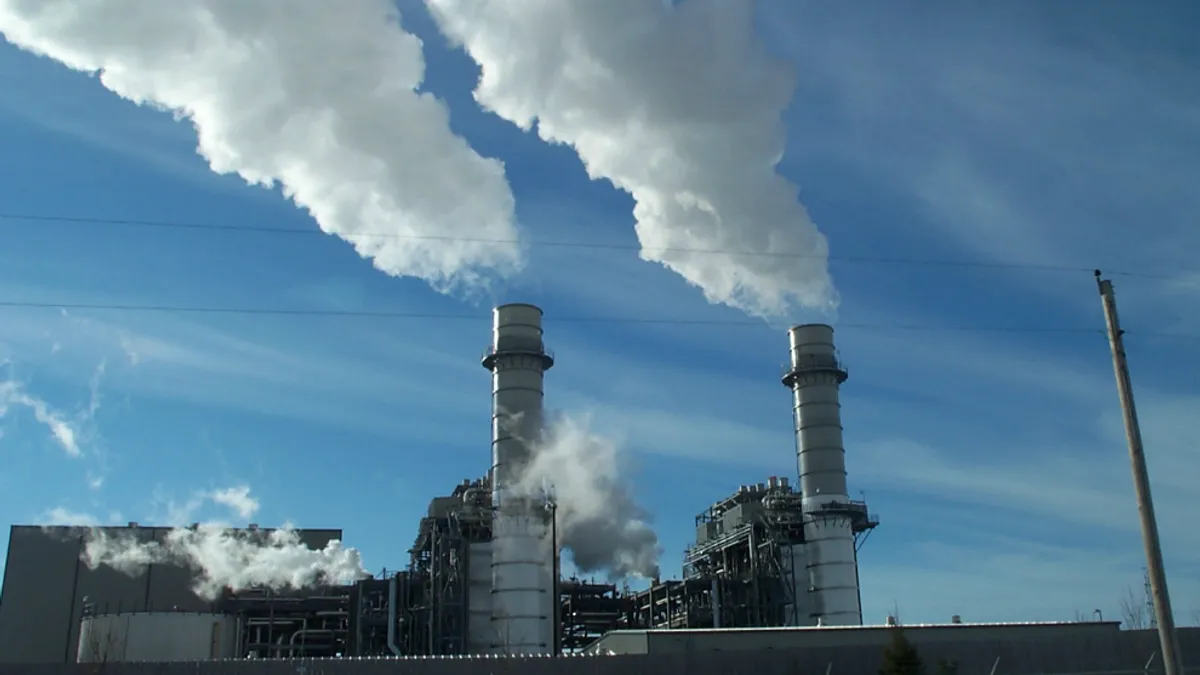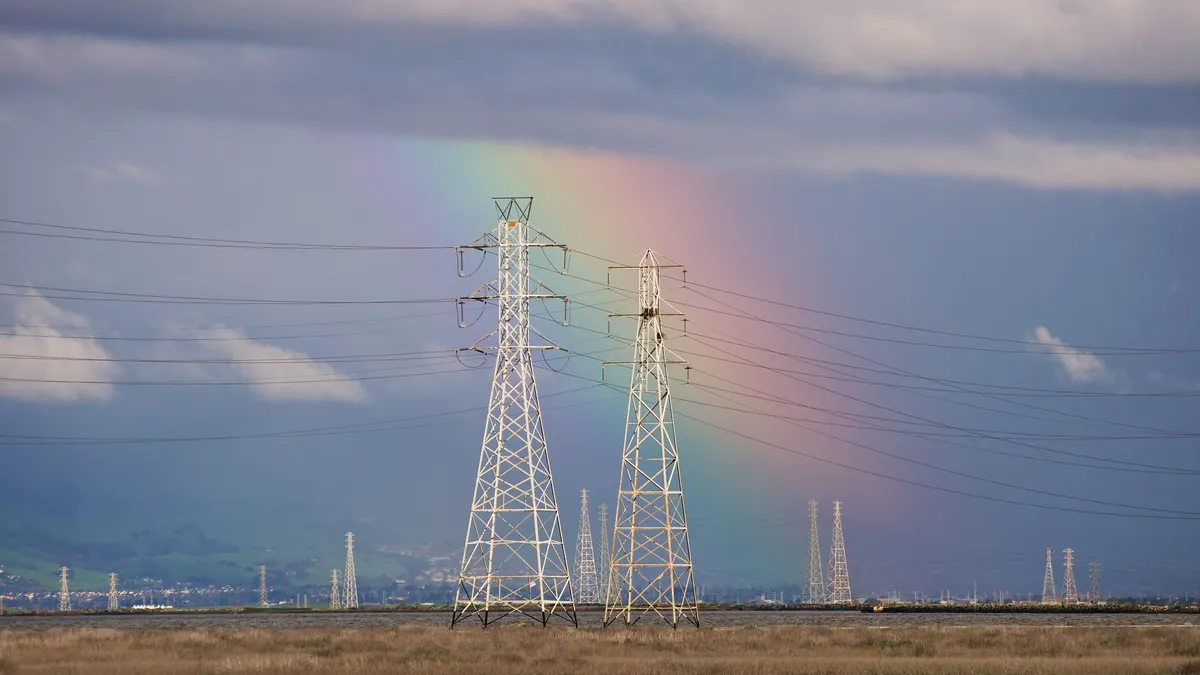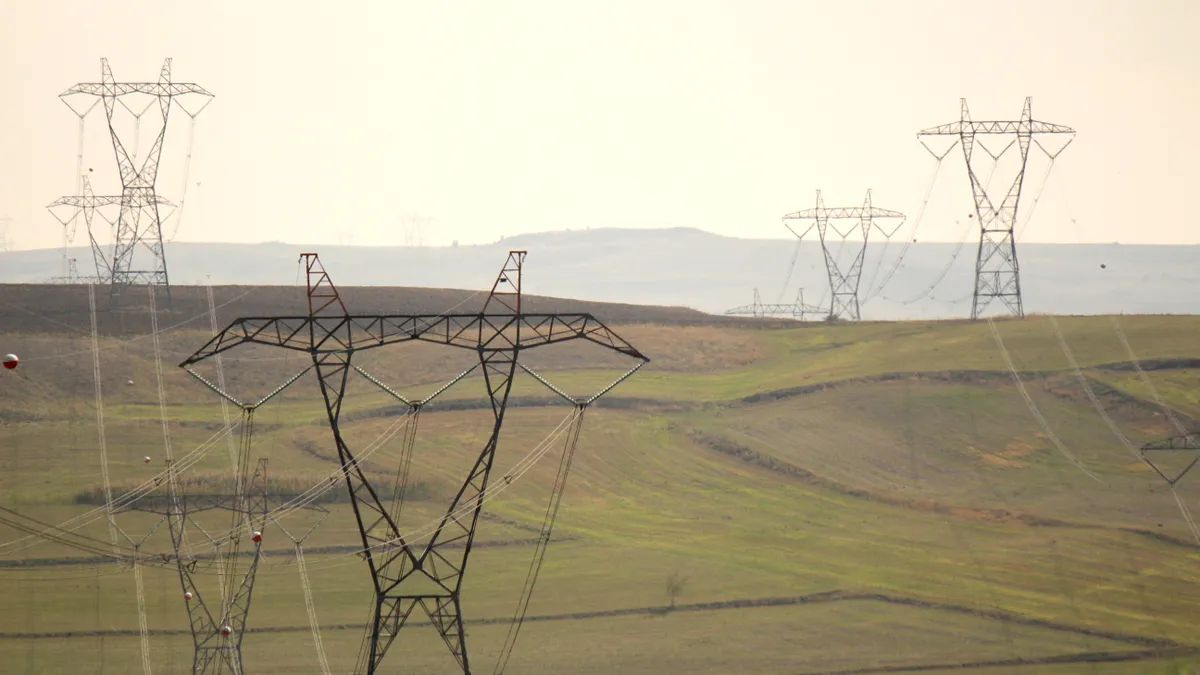Dive Brief:
- More than 4,000 MW of gas-fired generation will retire in New England in the next two years, potentially setting up a worrisome supply shortfall, according to the head of the region's power grid.
- RTO Insider reports that with the Pilgrim Nuclear Power Station in Plymouth, Mass. being considered for retirement and the planned closure Brayton Point coal plant, ISO-New England President and CEO Gordon van Welie called it a "period of vulnerability."
- Two planned pipelines will not be online before 2018, and the region's growing reliance on natural gas means winter demand spikes leave New England in a "precarious" position, van Welie said.
Dive Insight:
RTO Insider reports that for the third consecutive year, the New England grid will turn to its winter reliability program, which incentivizes fuel diversity in an effort to ensure adequate reserves. A total of 4,200 MW of nuclear, coal and oil capacity is being retired in the next three years, including the 1,500-MW Brayton Point facility in 2017. The 680-MW Pilgrim nuclear plant could be retired between 2017 and 2019.
The ISO has additional winter incentives in the works, but they will not be in place for another couple of years, leaving the region at its most vulnerable. “The winter of 2017-2018 is the one that worries me the most," van Welie said in a State of the Grid discussion.
The retirement of Entergy's Vermont Yankee nuclear facility in 2014 dropped nuclear's share of New England's generation from 34% to 30%. Because gas power plants make up 44% of the region’s generating capacity, van Welie said the availability of natural gas for power generation "has a profound impact on both grid reliability and power prices."
"During most of the year, the low price of natural gas is setting the wholesale price of electric energy, so power plants using more expensive fuels are getting squeezed financially," van Welie said. "As a result, more and more non-natural-gas-fired generators are retiring."
Two National Grid companies are pushing for the Massachusetts Department of Public Utilities to approve 20-year contracts for gas capacity on pipelines being developed in the state. Potential net present value of consumer benefits from the Northeast Energy Direct (NED) and Access Northeast pipelines amounts to nearly $11 billion, the companies said.
Opponents of the projects say more gas is not the answer, and the deals "put ratepayers on the hook for billions," Kathryn Eiseman, president of Pipe Line Awareness Network, told MassLive.
Last year, Massachusetts Attorney General Maura Healey (D) released a study that questioned the need for more natural gas pipeline capacity in New England, finding additional investment in demand response and efficiency is the cheapest and cleanest option to meet power demand.













